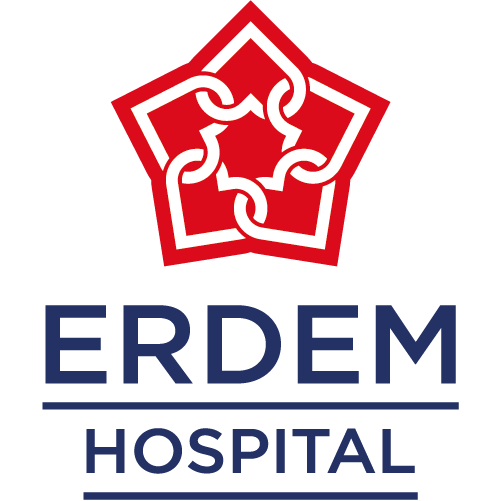The Intensive Care Unit (ICU) is a specialized department dedicated to sustaining the lives of critically ill patients. This unit is equipped with advanced medical technology and managed by highly trained professionals who provide round-the-clock monitoring and intervention to ensure patient survival. The ICU serves individuals suffering from life-threatening conditions requiring continuous support through medical devices, intensive medication regimens, and expert medical care.
Technology and Equipment in the ICU
Erdem Hospital’s ICU features cutting-edge equipment, including:
- Artificial respiration devices that support or replace spontaneous breathing.
- Vital sign monitors that track heart rate, blood pressure, oxygen levels, and other critical parameters.
- Infusion pumps and advanced medication delivery systems for precise drug administration.
- Hemodialysis machines for patients experiencing acute kidney failure.
- Defibrillators and advanced cardiac monitoring systems for cardiovascular emergencies.
Patient Categories Treated in the General ICU
The General Intensive Care Unit is designed to accommodate patients suffering from a variety of life-threatening conditions, including:
- Severe gastrointestinal bleeding
- Acute respiratory distress syndrome (ARDS) and severe respiratory failure
- Sudden strokes, including ischemic and hemorrhagic strokes
- Acute renal failure requiring emergency dialysis
- Complicated asthma exacerbations
- Exacerbation of chronic obstructive lung disease (COPD)
- Coma induced by cerebral hemorrhage or other neurological events
- Post-major surgery monitoring and recovery
- Serious infections such as sepsis or septic shock
- Polytrauma (head, chest, abdominal, and limb injuries) following accidents
- Cardiac surgery patients requiring post-operative intensive care
- Multi-organ dysfunction syndrome (MODS) following severe trauma
- Neurological conditions such as Myasthenia Gravis and Guillain-Barré syndrome
- Poisoning cases involving toxic substances that threaten vital functions
Specialized Intensive Care Units at Erdem Hospital
Coronary Intensive Care Unit (CICU)
The Coronary Intensive Care Unit is dedicated to patients suffering from severe cardiac conditions. It provides specialized care for individuals with heart failure, acute myocardial infarction (heart attack), arrhythmias, and other critical cardiovascular conditions. This unit features:
- 24/7 electrocardiographic (ECG) monitoring
- Advanced cardiac life support (ACLS) protocols
- Immediate intervention for heart rhythm disorders
- Expert cardiology team support
General Surgical Intensive Care Unit
This unit manages critically ill patients who require intensive post-surgical care. Patients recovering from major surgeries such as abdominal, neurosurgical, orthopedic, or thoracic procedures are closely monitored. Special attention is given to pain management, wound care, and infection prevention.
Internal Medicine Intensive Care Unit
Patients with severe internal medical conditions such as complex metabolic disorders, severe infections, and complications from chronic diseases (such as liver failure, diabetic ketoacidosis, or hematological crises) are treated in this unit. The focus is on stabilizing their condition and preventing further complications.
Cardiovascular Surgery Intensive Care Unit
Patients who have undergone cardiovascular surgeries, including coronary artery bypass grafting (CABG), heart valve replacement, and aortic aneurysm repair, receive specialized post-operative care in this unit.
Key Features of Cardiovascular ICU:
- 24-hour monitoring by expert cardiovascular surgeons, anesthesiologists, and critical care nurses
- Tailored pain management plans based on scientific protocols
- Early mobilization and physiotherapy to reduce post-operative complications
- State-of-the-art mechanical ventilation support when needed
- Shortened ICU stay for optimized recovery and discharge planning
Neonatal Intensive Care Unit (NICU)
The Neonatal Intensive Care Unit at Erdem Hospital is a state-of-the-art facility that provides specialized care for premature and high-risk newborns. The NICU supports newborns from as early as the 25th gestational week and offers advanced interventions to ensure survival and long-term health.
NICU Facilities and Services
- Comprehensive Level I, II, and III neonatal care for varying degrees of neonatal health conditions
- Advanced neonatal resuscitation equipment, including:
- Open heated beds
- Aspiration devices
- Oxygen therapy systems
- Neonatal ventilators
- Highly trained neonatologists, pediatric surgeons, and neonatal nurses
- Breastfeeding support and mother-infant bonding programs, including kangaroo care
- Parental visitation programs to encourage bonding and emotional support
- Neonatal transport incubators for infants transferred from other hospitals
- Collaboration with pediatric specialists, including:
- Pediatric cardiology
- Pediatric neurology
- Pediatric surgery
- Neonatal nephrology
- Pediatric orthopedics and radiology
Frequently Asked Questions (FAQs) About Intensive Care Units at Erdem Hospital
How long does a patient stay in the ICU?
- The duration varies depending on the condition. Some patients may need only a few days, while others require extended stays based on the severity of their illness and response to treatment.
Can family members visit ICU patients?
- Yes, but ICU visits are restricted to ensure patient safety. Visiting hours and regulations depend on the patient’s condition and hospital policies.
What are the survival rates for ICU patients?
- Survival rates depend on the underlying condition, timely intervention, and overall health status. Our hospital follows best practices to ensure the highest possible survival and recovery rates.
What kind of support is given to families of ICU patients?
- Erdem Hospital provides counseling services, regular medical updates, and emotional support to families of critically ill patients.
What happens after an ICU discharge?
- Patients discharged from the ICU may be transferred to a step-down unit or a regular hospital room. They continue to receive medical care, rehabilitation, and follow-up assessments to ensure full recovery.
How are premature babies cared for in the NICU?
- Premature infants receive round-the-clock monitoring, specialized feeding programs, respiratory support, and developmental care to promote healthy growth.
Can ICU patients communicate with their families?
- If they are awake and not on ventilators, communication is possible. Otherwise, nurses and doctors provide updates to families.
Conclusion
Erdem Hospital’s Intensive Care Units provide world-class medical care with cutting-edge technology and expert staff. Each unit is tailored to address the specific needs of critically ill patients, ensuring the highest standards of patient safety, recovery, and comfort. Our commitment to excellence ensures that every patient receives individualized, evidence-based treatment for the best possible outcomes.
